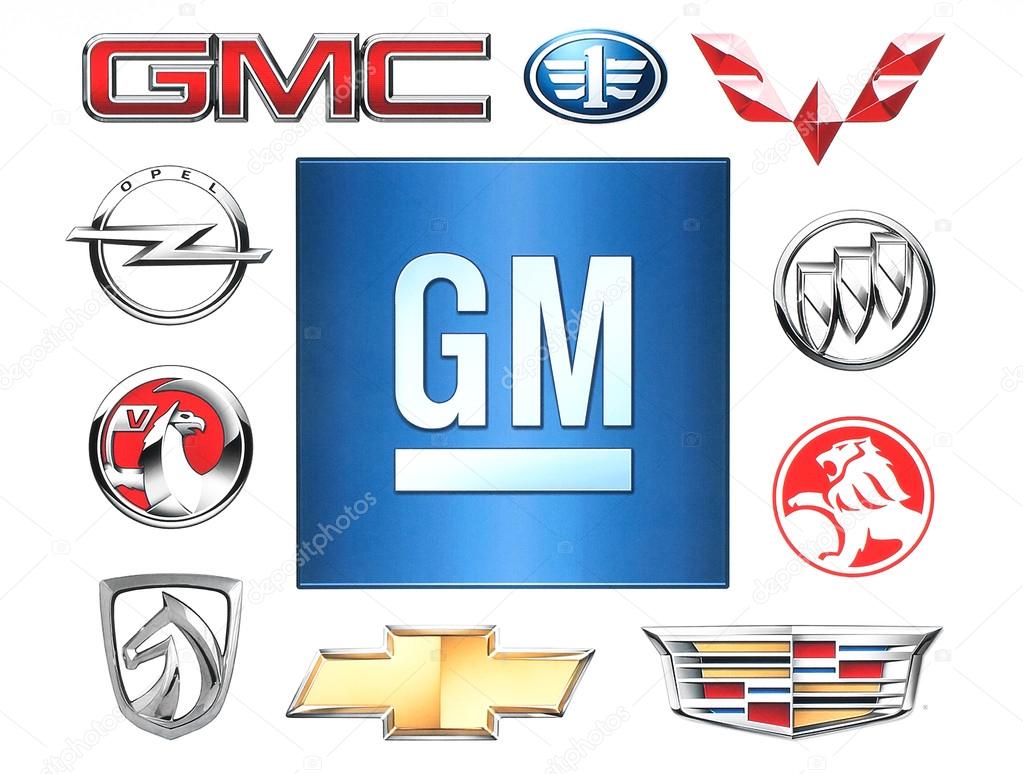General Motors' Corporate Empire: A Closer Look At The Companies Owned By GM
When you think about General Motors, you're probably imagining sleek cars and powerful trucks rolling off the assembly line. But did you know GM's reach extends far beyond just the automotive world? The company has built an empire that spans various industries, and understanding its portfolio can give you a whole new perspective on the global business landscape. So, let's dive into the fascinating world of companies owned by General Motors!
GM isn't just about building vehicles anymore. Over the years, it's acquired and partnered with numerous companies to expand its influence. This move into diverse sectors is a testament to their strategic vision and adaptability in an ever-changing market. But why does this matter to you? Well, whether you're an investor, a car enthusiast, or simply curious about how big corporations operate, knowing what lies under the GM umbrella can be pretty eye-opening.
So, buckle up as we explore the vast network of companies owned by GM. We’ll uncover everything from automotive innovations to tech startups and even financial services. This isn’t just about cars—it’s about understanding the powerhouse that is General Motors and how it continues to shape industries worldwide. Let's get started!
Read also:Meet Kevin James And His Royal Family
Table of Contents
- Biography of General Motors
- Key Acquisitions in GM's History
- Automotive Brands Owned by GM
- Financial Ventures and Services
- Tech Innovations and Partnerships
- Mobility Solutions and Investments
- International Expansion and Subsidiaries
- Environmental Initiatives and Green Companies
- Future Plans and Strategic Moves
- Conclusion and Takeaways
A Quick Biography of General Motors
Before we jump into the companies owned by GM, let's take a moment to understand who General Motors really is. Founded way back in 1908 by William C. Durant, GM started as a small automotive company but quickly grew into a global giant. Its headquarters are based in Detroit, Michigan, and it operates in over 100 countries worldwide.
GM's journey hasn't always been smooth sailing. From its early days to navigating financial crises, bankruptcy, and reinvention, the company has shown remarkable resilience. Today, it stands as one of the largest automakers in the world, with a market cap that reflects its dominance in the industry.
Here’s a quick glance at some key facts about GM:
| Founded | 1908 |
|---|---|
| Founder | William C. Durant |
| Headquarters | Detroit, Michigan, USA |
| Revenue (2022) | $156 billion |
| Employees | Approximately 165,000 |
Key Acquisitions in GM's History
GM's growth story is largely driven by its knack for strategic acquisitions. Over the decades, the company has bought out competitors, ventured into new markets, and diversified its portfolio. Here are some of the most notable acquisitions:
- 1929 - Buick Motor Company: One of GM's earliest acquisitions, Buick became a cornerstone of the company's brand portfolio.
- 1982 - Hughes Aircraft Company: A surprising move into aerospace technology, showcasing GM's ambition to diversify beyond automobiles.
- 2000 - OnStar: Acquiring OnStar marked GM's entry into connected vehicle technology, paving the way for modern innovations.
- 2017 - Cruise Automation: This acquisition positioned GM as a leader in autonomous driving technology, aligning with future trends in mobility.
Each acquisition was made with a clear strategic intent, whether it was to strengthen their automotive lineup, enter new markets, or innovate in emerging technologies. These moves have helped GM stay competitive and relevant in an ever-evolving industry.
Automotive Brands Owned by GM
Of course, no discussion about GM would be complete without talking about its legendary automotive brands. GM owns some of the most iconic car and truck brands in the world. Here's a closer look:
Read also:Hoda Kotbs Suburban Dream A New Home Full Of Love And Memories
Chevrolet
Chevy, as it's affectionately known, is one of GM's flagship brands. From the classic Corvette to the ever-popular Silverado pickup truck, Chevrolet offers something for every type of driver. Its affordability and reliability make it a favorite among families and businesses alike.
GM Financial
Wait, what? GM Financial? Yup, that's right. While not a car brand, GM Financial plays a crucial role in the company's operations. It provides financing solutions for dealers and customers, helping to drive sales and build customer loyalty.
GMC
If you're looking for ruggedness and power, GMC is your go-to brand. Known for its heavy-duty trucks and SUVs, GMC appeals to those who need more than just a regular vehicle. The Terrain and Yukon models are just a couple of examples of GMC's impressive lineup.
Financial Ventures and Services
GM isn't just about selling cars; it's also a major player in the financial services sector. GM Financial offers a wide range of products, including:
- Auto Loans: Financing options for both new and used vehicles.
- Leasing Programs: Flexible leasing plans for customers who prefer short-term commitments.
- Insurance Services: Comprehensive insurance packages tailored to meet the needs of drivers.
By offering these services, GM ensures that customers have access to everything they need to own and maintain their vehicles. This vertical integration not only boosts profitability but also enhances the overall customer experience.
Tech Innovations and Partnerships
In today's tech-driven world, GM knows it has to keep up with the times. That's why they've invested heavily in cutting-edge technologies and formed strategic partnerships with tech giants. Some highlights include:
Cruise Automation
GM's acquisition of Cruise Automation in 2016 was a game-changer. Cruise is at the forefront of autonomous driving technology, and its collaboration with GM has led to significant advancements in self-driving cars.
Electric Vehicle Development
GM is committed to a sustainable future, and electric vehicles (EVs) are a big part of that vision. They've partnered with companies like LG Chem to develop advanced battery technology, ensuring their EVs have the range and performance drivers expect.
Mobility Solutions and Investments
As cities grow and transportation needs evolve, GM is positioning itself as a leader in mobility solutions. Their investments in ride-sharing services and urban transportation systems reflect their commitment to solving modern-day challenges.
Lyft Partnership
GM has a significant stake in Lyft, one of the largest ride-sharing platforms in the world. This partnership allows them to explore new business models and tap into the growing demand for shared mobility services.
Bolt EV Fleet
GM's Bolt EV fleet is another example of their focus on sustainable transportation. These all-electric vehicles are being deployed in various cities as part of shared mobility programs, offering an eco-friendly alternative to traditional taxis.
International Expansion and Subsidiaries
GM's influence extends far beyond North America. Through subsidiaries and joint ventures, the company has established a strong presence in key markets around the globe. Some notable international operations include:
GM China
China is one of GM's largest markets, and the company has formed several successful joint ventures with local partners. These partnerships have enabled GM to produce and sell vehicles tailored to the Chinese market, driving significant growth for the company.
Opel/Vauxhall
In Europe, GM operates under the Opel and Vauxhall brands. These brands are well-established in the region and offer a wide range of vehicles that cater to European tastes and regulations.
Environmental Initiatives and Green Companies
GM is serious about sustainability, and they've taken several steps to reduce their environmental impact. Here are a few initiatives worth mentioning:
- Zero Waste Facilities: GM aims to make all of its manufacturing facilities zero waste by 2035.
- Renewable Energy: The company has committed to sourcing 100% of its electricity from renewable sources by 2030.
- EV Production: By 2035, GM plans to eliminate tailpipe emissions from new light-duty vehicles, focusing solely on electric models.
These efforts demonstrate GM's dedication to creating a more sustainable future, both for the planet and its customers.
Future Plans and Strategic Moves
Looking ahead, GM has ambitious plans to continue its dominance in the automotive and mobility sectors. Some of their key initiatives include:
Electrification
GM is investing billions in electric vehicle development, with plans to launch multiple new models in the coming years. Their goal is to make EVs accessible and affordable for everyone, not just eco-conscious consumers.
Autonomous Driving
Cruise continues to push the boundaries of autonomous driving technology, with plans to roll out self-driving taxis and delivery vehicles in select cities. This could revolutionize urban transportation and create new revenue streams for GM.
Conclusion and Takeaways
As we've seen, General Motors is much more than just a car company. It's a global powerhouse with a diverse portfolio of companies and brands that span various industries. From automotive innovations to financial services and tech partnerships, GM continues to evolve and adapt to meet the changing needs of its customers.
So, what can you take away from all this? First, GM's strategic acquisitions and investments have been key to its success. Second, their focus on sustainability and innovation positions them well for the future. And finally, whether you're a car enthusiast or just someone interested in how big corporations operate, understanding GM's business model can be incredibly enlightening.
Now it's your turn! Leave a comment below and let us know what you think about GM's corporate empire. Are you excited about their future plans? Or do you have any questions about their current operations? Share your thoughts, and don't forget to check out our other articles for more insights into the world of business and technology. Thanks for reading, and we'll see you in the next one!
Article Recommendations


